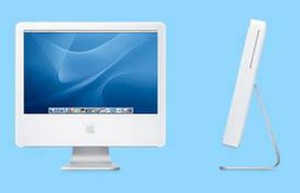 The announcement of Apple’s new G5 professional system is probably the most significant development in the Mac world in years.
The announcement of Apple’s new G5 professional system is probably the most significant development in the Mac world in years.
But instead of rejoicing in the beauty of a brand-new, lightning-fast chip and the promise of further developments, we are treated to analysts once again predicting Apple’s imminent demise and infights over whether the benchmarks Apple used to show off the new chip were unfairly manipulated to the G5′s advantage.
For the unitiated, Apple contracted Veritest to conduct the tests of the G5 against high-end Xeon and Pentium chips. Without getting into too much of the technical stuff, some have criticized the tests for the way the software was compiled, saying that it may have given the Mac an unfair advantage. If you want to get into the geeky details, go here.
Apple officials have stood by their claims, saying the tests were fair and that it was the best way to compare the two platforms fairly.
Who really cares? I don’t think anyone can dispute the ground-breaking nature of the Power Mac G5, and I’m not talking just the new IBM 970 chips inside that run up to 2 GHz. I’m talking about the whole, cheese grater-like package.
The new Power Macs — which top out with dual-2 GHz chips — have a 1 GHz system bus, compared to the 800 MHz in this Pentium 4 system. They are the first non-workstation desktop computers to feature 64-bit processors, which enable them to handle an enormous 8 gigabytes of memory. And when Panther ships at the end of the year, Apple will actually have an OS that supports its 64-bit processor. Microsoft, on the other hand, isn’t planning on shipping its new version of Windows, code-named Longhorn, until at least 2005.
So what’s wrong with Apple trying to make itself look good, anyway? Don’t PC makers do the same thing? I seem to remember the whole Gateway Profile vs. iMac drama last year, when the PC maker rolled out its line of flat-panel iMac clones. The company then started an advertising campaign touting the machine’s speed compared to the iMac and showed the Profile jumping over the iMac. Problem was, just about every independent comparison done between the machines, such as this one by Tech TV, showed the iMac to be a superior machine.
I bet that if the G5 had been announced at 5 GHz, the PC analysts would have gone on about how clock speed doesn’t matter, something Apple has been saying for years. It all depends on which side of the table you happen to be sitting on.
Benchmark tests can be twisted and turned any which way by either side, especially since they are essentially comparing Apples to oranges (pun intended). The processors on each platform simply are so different that going into any type of protracted argument in this area is just a waste of time. And the truth is, none of us will really know how fast the G5 really is until we all get our hands on one and start using it every day.
With all of the improvements in the overall design of the machine, I think the speed will send many of us clamoring for our pocketbooks.
I can actually hear Apple’s advertising folks asking each other: "Hey, do we still have those ads with the Intel chips and the snails back there somewhere?"


No comments
Be the first one to leave a comment.